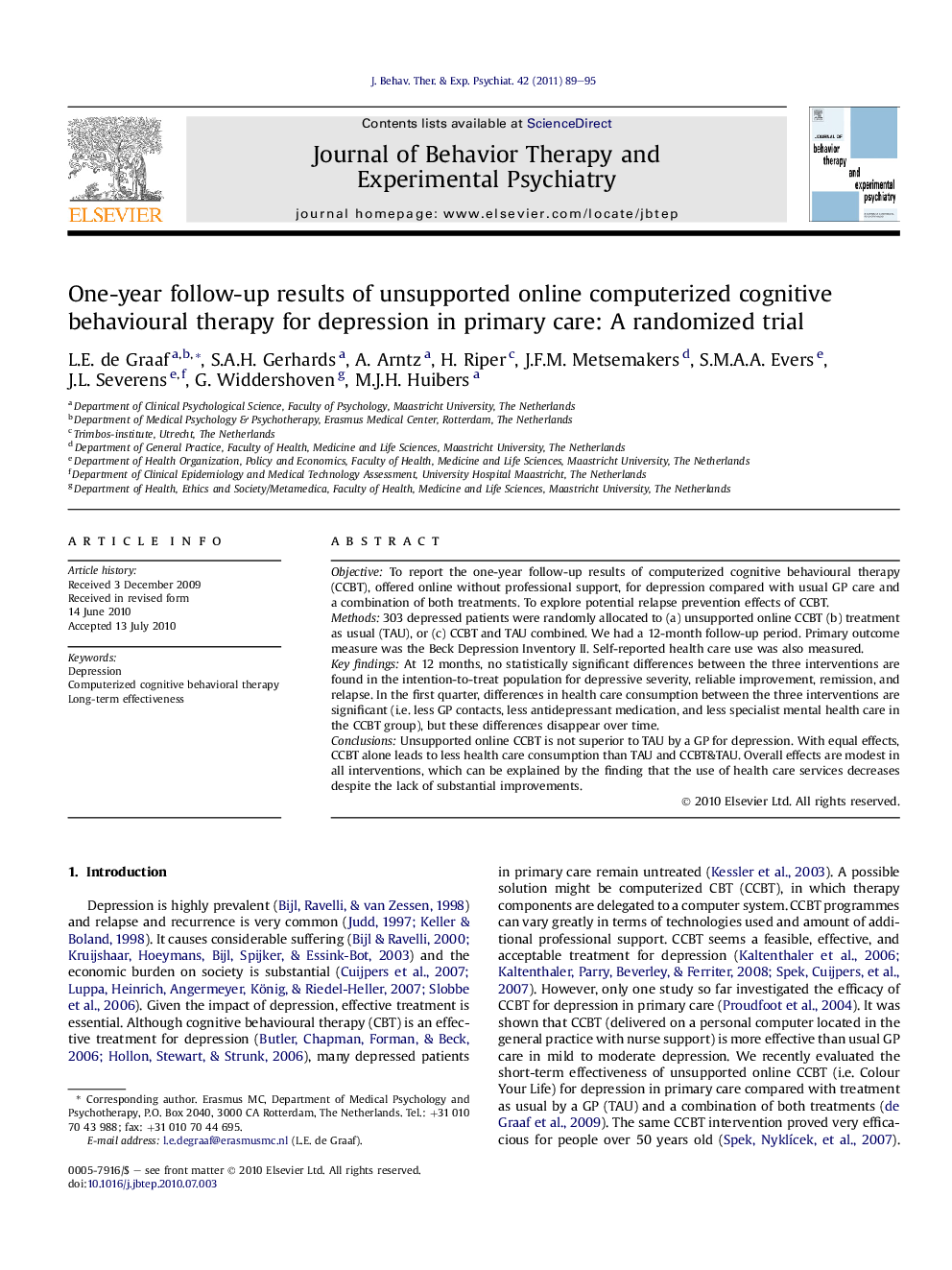| کد مقاله | کد نشریه | سال انتشار | مقاله انگلیسی | نسخه تمام متن |
|---|---|---|---|---|
| 910432 | 917462 | 2011 | 7 صفحه PDF | دانلود رایگان |

ObjectiveTo report the one-year follow-up results of computerized cognitive behavioural therapy (CCBT), offered online without professional support, for depression compared with usual GP care and a combination of both treatments. To explore potential relapse prevention effects of CCBT.Methods303 depressed patients were randomly allocated to (a) unsupported online CCBT (b) treatment as usual (TAU), or (c) CCBT and TAU combined. We had a 12-month follow-up period. Primary outcome measure was the Beck Depression Inventory II. Self-reported health care use was also measured.Key findingsAt 12 months, no statistically significant differences between the three interventions are found in the intention-to-treat population for depressive severity, reliable improvement, remission, and relapse. In the first quarter, differences in health care consumption between the three interventions are significant (i.e. less GP contacts, less antidepressant medication, and less specialist mental health care in the CCBT group), but these differences disappear over time.ConclusionsUnsupported online CCBT is not superior to TAU by a GP for depression. With equal effects, CCBT alone leads to less health care consumption than TAU and CCBT&TAU. Overall effects are modest in all interventions, which can be explained by the finding that the use of health care services decreases despite the lack of substantial improvements.
Research highlights
► The one-year follow-up results look similar to those at six months of follow-up
► Depressive improvement was maintained for CCBT, TAU and CCBT&TAU
► The outcomes remained comparable for CCBT, TAU and CCBT&TAU
► The overall effects of all three primary care interventions were modest
► With equal effects, CCBT led to less health care consumption than TAU and CCBT&TAU
Journal: Journal of Behavior Therapy and Experimental Psychiatry - Volume 42, Issue 1, March 2011, Pages 89–95